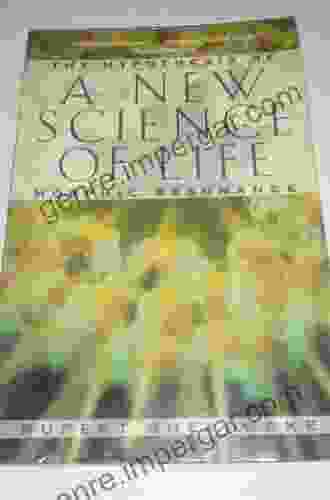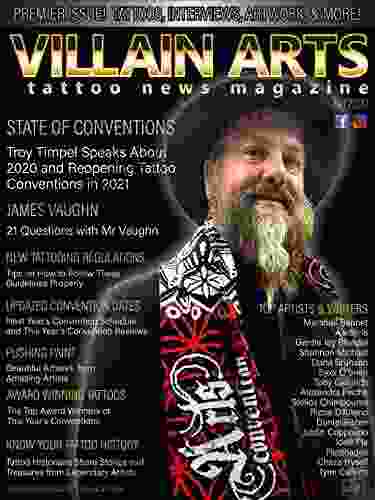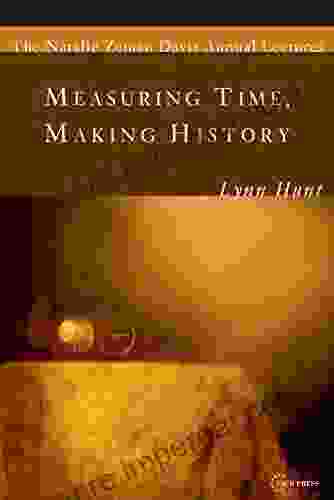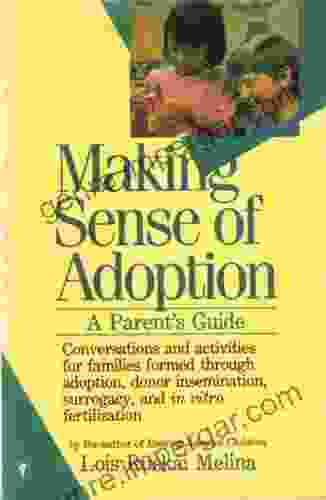Measuring Time, Making History: An Exploration of Timekeeping and its Impact on Human Civilization

4 out of 5
| Language | : | English |
| File size | : | 240 KB |
| Text-to-Speech | : | Enabled |
| Screen Reader | : | Supported |
| Enhanced typesetting | : | Enabled |
| Word Wise | : | Enabled |
| Print length | : | 70 pages |
| Lending | : | Enabled |
Time is an enigmatic concept that has captivated the human imagination for centuries. From ancient civilizations to modern societies, we have sought to measure, understand, and control the relentless passage of time. In her groundbreaking work, "Measuring Time, Making History," renowned historian Natalie Zemon Davis delves into the fascinating relationship between time and our understanding of history.
Davis argues that time is not merely a neutral backdrop against which historical events unfold, but rather an active force that shapes our perception and interpretation of the past. Throughout history, different societies have developed unique ways of measuring and experiencing time, and these temporal frameworks have had a profound impact on the way we construct historical narratives and make sense of our place in the world.
Timekeeping Devices: From Sundials to Atomic Clocks
Davis begins by exploring the evolution of timekeeping devices, from the rudimentary sundials of ancient Egypt to the highly precise atomic clocks of the modern era. She argues that the development of these devices has not only allowed us to measure time with greater accuracy, but has also transformed our very understanding of time itself.
For example, the invention of the mechanical clock in the 14th century marked a significant shift in our perception of time. Prior to this, time was often perceived as a cyclical and unpredictable force. However, the mechanical clock introduced a new sense of regularity and linearity, paving the way for the development of modern science and technology.
Time and Historical Narratives
Davis goes on to discuss the complex relationship between time and historical narratives. She argues that the way we measure and experience time influences the way we construct historical accounts and make sense of the past.
For example, the Western historical tradition has often emphasized a linear and progressive view of time, with history seen as a march towards progress. However, other cultures may have different temporal frameworks, which lead to different interpretations of the past.
"Measuring Time, Making History" is a thought-provoking and insightful exploration of the fascinating relationship between time and our understanding of history. Natalie Zemon Davis offers a nuanced and interdisciplinary perspective, drawing on a wide range of sources to demonstrate the profound impact that timekeeping and temporal frameworks have had on human civilization.
This book is a must-read for anyone interested in the history of time, historiography, or the social and cultural construction of time. It is a work that will challenge your assumptions about time and inspire you to think in new and innovative ways about the past, present, and future.
Free Download "Measuring Time, Making History" on Our Book Library
4 out of 5
| Language | : | English |
| File size | : | 240 KB |
| Text-to-Speech | : | Enabled |
| Screen Reader | : | Supported |
| Enhanced typesetting | : | Enabled |
| Word Wise | : | Enabled |
| Print length | : | 70 pages |
| Lending | : | Enabled |
Do you want to contribute by writing guest posts on this blog?
Please contact us and send us a resume of previous articles that you have written.
 Book
Book Novel
Novel Page
Page Chapter
Chapter Text
Text Story
Story Genre
Genre Reader
Reader Library
Library Paperback
Paperback E-book
E-book Magazine
Magazine Newspaper
Newspaper Paragraph
Paragraph Sentence
Sentence Bookmark
Bookmark Shelf
Shelf Glossary
Glossary Bibliography
Bibliography Foreword
Foreword Preface
Preface Synopsis
Synopsis Annotation
Annotation Footnote
Footnote Manuscript
Manuscript Scroll
Scroll Codex
Codex Tome
Tome Bestseller
Bestseller Classics
Classics Library card
Library card Narrative
Narrative Biography
Biography Autobiography
Autobiography Memoir
Memoir Reference
Reference Encyclopedia
Encyclopedia Lionel Gourichon
Lionel Gourichon Leslie Day
Leslie Day Manning Johnson
Manning Johnson Lorna J Sass
Lorna J Sass Nicole Starosielski
Nicole Starosielski Lisa Mills
Lisa Mills Lois Demarco
Lois Demarco Luisa Florence
Luisa Florence Terry Schreiber
Terry Schreiber Lowell Edmunds
Lowell Edmunds Manda Zand Ervin
Manda Zand Ervin Peter J Uren
Peter J Uren M J Lewis
M J Lewis Lucy T
Lucy T Lucas Dousay
Lucas Dousay Manoj Chenthamarakshan
Manoj Chenthamarakshan Magic Brain
Magic Brain Lloyd R Snyder
Lloyd R Snyder Lorraine Fouchet
Lorraine Fouchet Lifecaps
Lifecaps
Light bulbAdvertise smarter! Our strategic ad space ensures maximum exposure. Reserve your spot today!

 Jesus MitchellExpress Between Saigan3: An Enigmatic Voyage into the Depths of Imagination
Jesus MitchellExpress Between Saigan3: An Enigmatic Voyage into the Depths of Imagination
 Allen ParkerUnlocking the Potential of Stylosanthes: A Comprehensive Guide to Biology and...
Allen ParkerUnlocking the Potential of Stylosanthes: A Comprehensive Guide to Biology and... Floyd PowellFollow ·6.3k
Floyd PowellFollow ·6.3k Ralph TurnerFollow ·14.3k
Ralph TurnerFollow ·14.3k Brandon CoxFollow ·15.1k
Brandon CoxFollow ·15.1k Theodore MitchellFollow ·7.4k
Theodore MitchellFollow ·7.4k Elmer PowellFollow ·13k
Elmer PowellFollow ·13k Jake PowellFollow ·5.1k
Jake PowellFollow ·5.1k Raymond ParkerFollow ·11.6k
Raymond ParkerFollow ·11.6k Floyd RichardsonFollow ·2k
Floyd RichardsonFollow ·2k

 J.D. Salinger
J.D. SalingerThe Montefeltro Conspiracy Renaissance Mystery Decoded
In the heart of the Italian Renaissance, a...

 Ryūnosuke Akutagawa
Ryūnosuke AkutagawaElan Vital Magazine: A Literary Sanctuary for the Mind...
In this fast-paced digital age, where...

 Derek Bell
Derek BellCode Biology: Unveiling the New Science of Life
Every living organism, from...

 Rick Nelson
Rick NelsonUnleash the Darkness: Dive into the World of Villain Arts...
Prepare to be...

 Tony Carter
Tony CarterEmbark on a Scientific Odyssey: Unveil the Secrets of...
In an era where environmental concerns...
4 out of 5
| Language | : | English |
| File size | : | 240 KB |
| Text-to-Speech | : | Enabled |
| Screen Reader | : | Supported |
| Enhanced typesetting | : | Enabled |
| Word Wise | : | Enabled |
| Print length | : | 70 pages |
| Lending | : | Enabled |











The Social Construction of Time
Davis also examines the social construction of time, arguing that our perception of time is shaped by cultural and social factors. Different societies have developed their own unique ways of dividing and measuring time, and these variations reflect the values, beliefs, and practices of those societies.
For example, in many pre-industrial societies, time was often measured in relation to agricultural cycles or religious festivals. In contrast, modern industrial societies tend to emphasize linear time and punctuality, reflecting the importance of productivity and efficiency in the modern world.